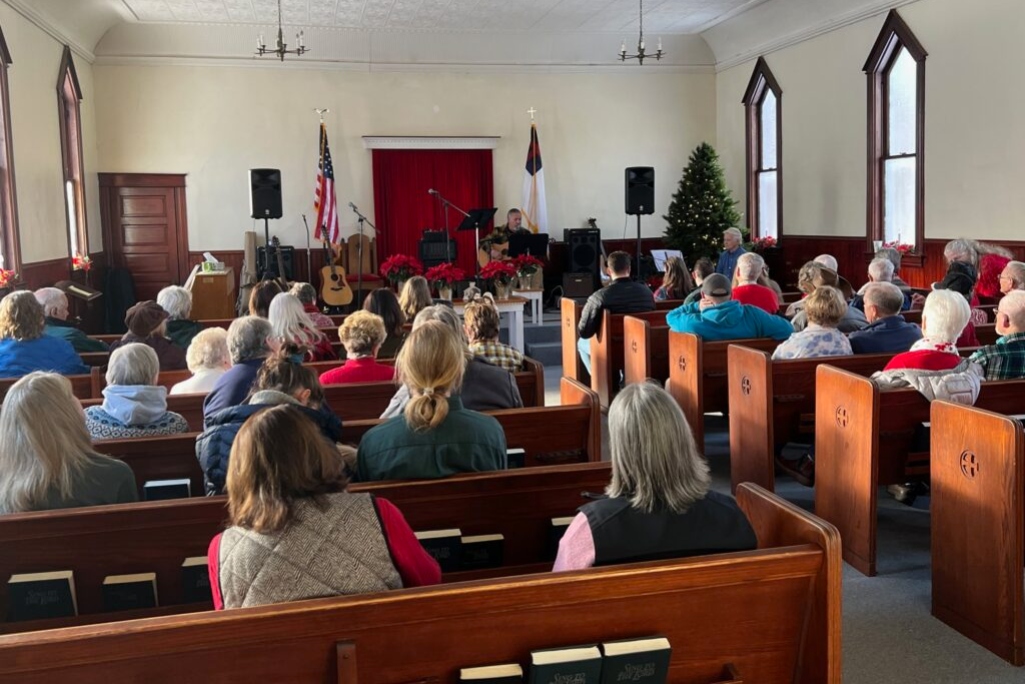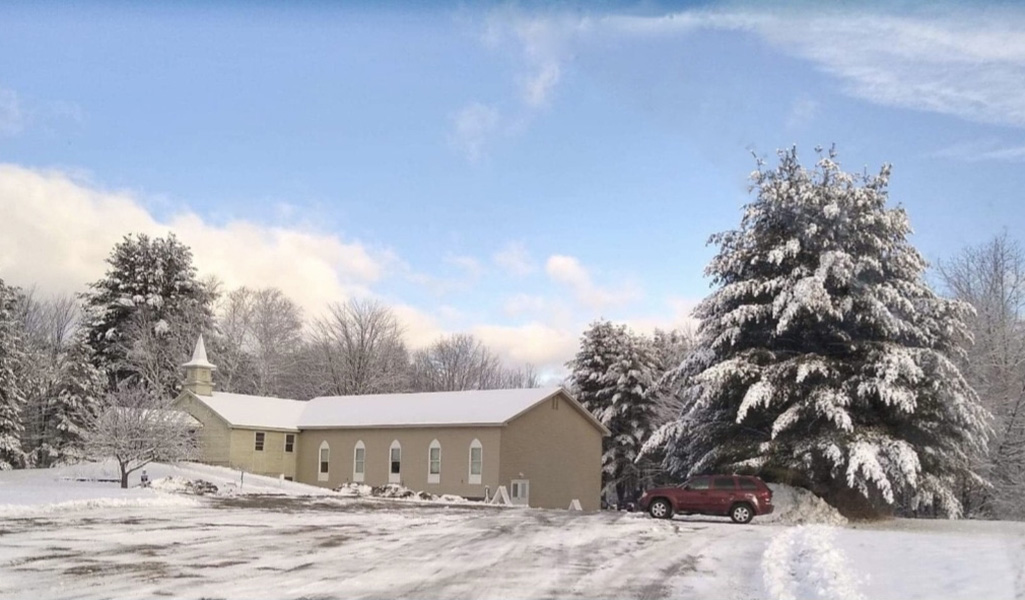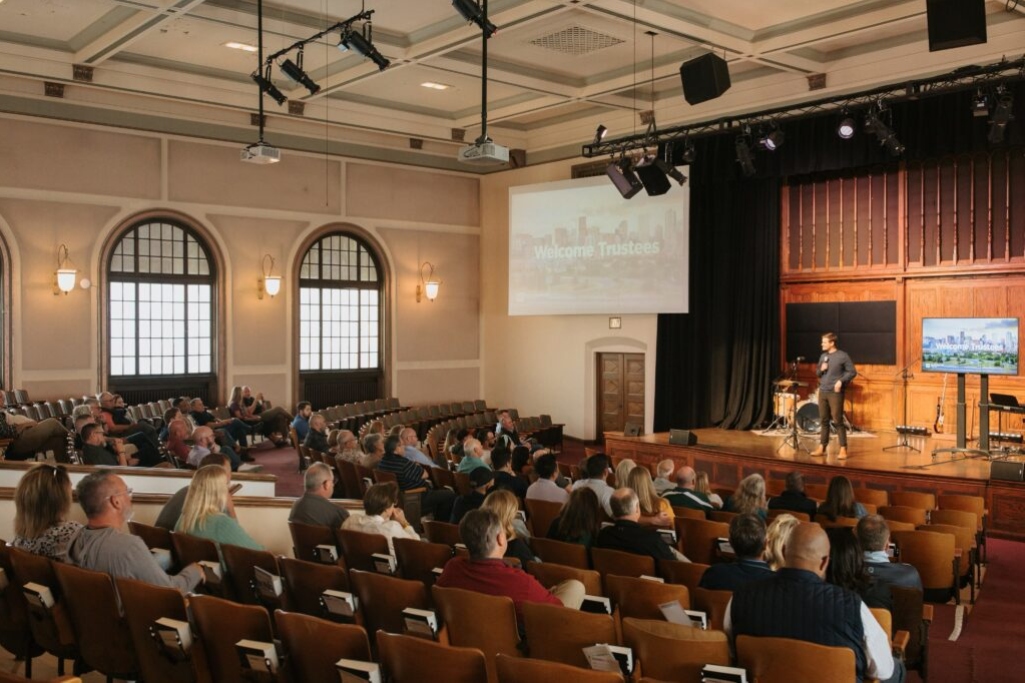
Waterville Country Church hosted a Christmas concert in December.
WATERVILLE, Vt. (BP) – Like many towns in New England, history is important and deep here. Connections last through generations, and so when a Nazarene church went up for sale, a local group bought it, lest it be repurposed as a coffee shop, private home or another use that belied its origins.
There was a particular reason for concern in Waterville, a village located among state forestland some 22 miles from the Canadian border.
“There have only been three churches in this town in its history, dating back to the 1700s,” said Robby Pitt. “A Unitarian church became the town hall. A Church of Christ/United Methodist church is still here. And then there’s the Nazarene church that was built in 1910.”
When the latter church’s building went on the market, it was purchased by members of a family who had attended Daybreak Community Church in Burlington when Pitt – who planted Daybreak in 1999 – was its pastor.
Pitt had moved on to plant churches in the Los Angeles area and Colorado. The purchasers of the Nazarene church building reached out to their former pastor on if he would be willing to return to the Green Mountain State.
The road had been a long one to that point.
Pitt was a Southwestern Baptist Theological Seminary student in 1983 when he first heard the term “church planter.”
“I knew it was what I was called to do,” he said. “It shaped the direction I was heading and how God was shaping me.”
After getting married he moved to Highlands Ranch, Colo., where he and his wife, Kim, were part of a core team for Summit Community Church. After two and a half years they moved to the Washington, D.C., suburbs to plant a church also named Daybreak Community, staying there seven years.
At that point, they were called to Vermont, planting the next Daybreak Community Church in 1999. While there he also started working with the state convention. After 10 years Pitt and his family moved to California to plant Fellowship Church, a diverse congregation that included Korean, Afghani, Armenian, Arabic, Spanish, Filipino, Romanian and African American congregations.
While in Los Angeles, Pitt became the city missionary for the North American Mission Board and became a catalyst for California Southern Baptists. That work preceded a move back to Colorado.
This time Pitt relocated to the Boulder area to plant The Peak, a church that struggled to find its footing during COVID amid strict shutdown measures.
Last year he received a phone call from Vermont friends who had purchased a church building in Waterville. Would he consider a return as church planter?
Pitt is a self-described hippie who came to faith during the Jesus Movement while a student at James Madison University. His guitar and harmonica skills, not to mention gifts for never meeting a stranger, have worked well since his arrival last August to begin planting Waterville Country Church.
“We are getting settled and becoming a part of the fabric of our community,” Pitt told BNE managing editor Dan Nicholas. “We’ve been building a core group, developing friendships, and meeting lots of people. We are discovering multiple ways to be part of and to be a blessing to our community. God has been giving us favor, and we have received a warm welcome.”
Each church planting location has brought its own culture, but with one constant as to their efforts, he told Baptist Press.
“We have tried to become part of the community and missionaries in each plant, contextualizing a never-changing Gospel within radically different settings,” he said. “God blessed by giving us great favor in every community we planted in.”
Waterville Country Church has not officially begun just yet.
“We haven’t started doing weekly services,” Pitt said. “We did a three-week series and a four-week series, and some things like that. Right now we’re in a series ‘Grace and Truth: Living in the Tension,’ and getting ready for a third week of that.”
Those series are taught on Sunday nights. Other events, such as a Thanksgiving potluck, end-of-summer cookout, reading hours for children and a gingerbread house party have also been held at the church. Folk concerts, hosted by the church, haven’t gone unnoticed by the community.
In addition to being a pastor, the 66-year-old Pitt also directs the Baptist Churches of New England’s Pastoral Leadership Development. Previously he had also worked with the state conventions in California and Colorado.
“Robby’s ministry is critical to helping pastors be effective,” said Terry Dorsett, BCNE executive director. “Far too many pastors have a degree or two from a seminary and are great theologians, but really don’t know how to pastor a group of people.”
The church building that his congregation uses has history in the area, with many locals having been members. Waterville Country Church’s presence is appreciated if for no other reason than that, but Pitt knows it’s for more important reasons the church is there.
“We’ve been very well-received in the community,” he said. “It’s a good foot forward.”
(EDITOR’S NOTE – Scott Barkley is national correspondent for Baptist Press.)


